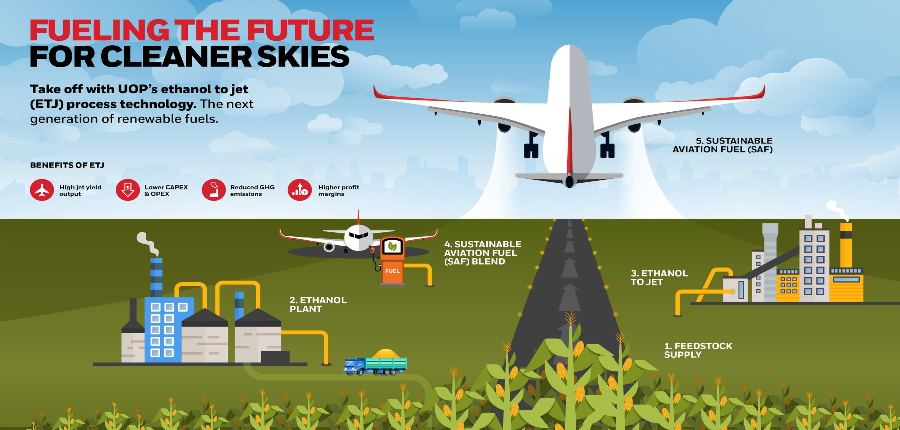
Sustainable Aviation Fuel (SAF): Paving the Green Path for Air Travel
The aviation sector has come to light as a major source of greenhouse gas emissions. As the globe struggles to address the problems caused by climate change. The idea of Sustainable Aviation Fuel (SAF) has gained popularity as a potential remedy. To address this issue and move toward a more sustainable future. SAF is an important method for lowering the carbon footprint of the aviation sector and moving toward more environmentally friendly air travel.
What is Sustainable Aviation Fuel?
The term “sustainable aviation fuel,” also referred to as “bio-jet fuel” or “renewable aviation fuel,” designates a jet fuel substitute for traditional, fossil-based jet fuel. That is made from renewable resources. Such as waste products, plant-based sources, and other non-fossil resources, as opposed to conventional jet fuel. Which is predominantly derived from crude oil. SAF’s main goal is to provide a lower carbon-intensity fuel. The choice to considerably reduce the net carbon emissions related to aviation.

Several Different Processes To Produce SAF
Fischer-Tropsch (FT): Utilizing FT technology, biomass or waste materials are converted into liquid hydrocarbons. This technique can utilize a wide range of feedstocks, including agricultural and forestry waste.
Alcohol-to-Jet (ATJ): This process uses bioethanol or another alcohol to chemically manufacture jet fuel. Feedstocks include things like corn, sugarcane, and various lignocellulosic substances.

Benefits of Sustainable Aviation Fuel
Carbon Emissions Reduction: On a life-cycle basis, SAF has the potential to reduce carbon emissions by up to 80% when compared to conventional jet fuel. The aviation industry’s attempts to lessen its environmental impact are greatly aided. By this reduction in emissions.
Energy Security: SAF increases energy security. It can be manufactured from readily available feedstocks locally. Reducing dependency on imported fossil fuels.
Market Signal: By promoting investment in R&D, technology, and infrastructure, the rising adoption of SAF gives a strong market signal for the creation of sustainable practices within the aviation industry.
Current and Future Use
Because of problems with availability, cost, and legal licenses. To meet sustainability goals, airlines, and aviation businesses are progressively pledging to include SAF into their operations. Through incentives, rules, and research projects, numerous nations and international organizations are also urging the implementation of SAF.

In conclusion, The aviation sector needs to take a big step toward going green. And sustainable aviation fuel is that move. SAF presents a possible way to dramatically cut carbon emissions and encourage a more sustainable future for air travel. By utilizing the potential of renewable resources and cutting-edge production techniques.
Hi my family member I want to say that this post is awesome nice written and come with approximately all significant infos I would like to peer extra posts like this